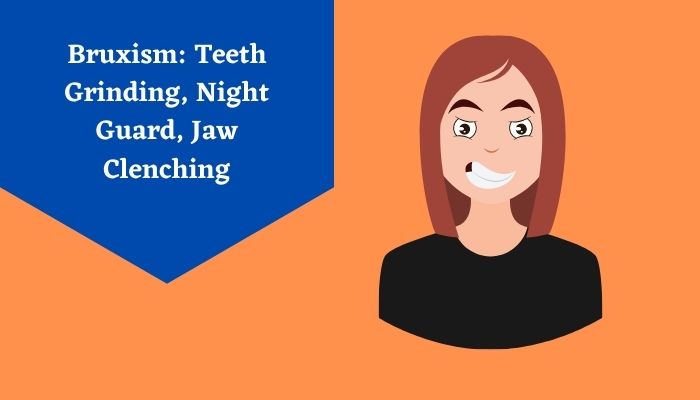Bruxism is a condition of oral health wherein the person suffering from the problem has a conscious or unconscious habit of grinding their teeth.
The awareness of Bruxism symptoms is mostly low since even the people who suffer from it do not realize that they need teeth grinding treatment. It can have adverse effects if the condition remains unchecked for very long.
Bruxism is not a serious problem in the initial stages. It can be rectified by using night guards and caps. However, if the problem persists, the individual suffering from Bruxism symptoms may notice loose teeth in their mouth and even pain due to jaw clenching.
Can Everyone Get a Kidney Transplant in India?
There are several Bruxism causes and while researchers are studying the impact of sleep over Bruxism and vice versa, the common reason for requiring bruxism treatment is habits built into your lifestyle.Researchers have found that people who consume large quantities of alcohol or recreational drugs usually face Bruxism symptoms more often than others. Aside from that, consuming a lot of caffeinated items and cigarettes also factor into bruxism causes.
People who drink excessive amounts of alcohol, smoke and abuse drugs, or consume large amounts of coffee and other caffeinated items have jittery tendencies all day. They tend to grind their teeth or clench their jaw more often, thus leading to a need for teeth grinding treatment.
Other factors that often call for bruxism treatment as causes are:
- Anxiety and stress disorders
- Sleep-related disorders
- Consuming Selective Serotonin Reuptake Inhibitors, which are a class of anti-anxiety drugs that are prescribed to treat other illnesses and ailments.
Top 10 Symptoms of Bruxism
The primary bruxism symptoms involve teeth grinding, however, not everyone notices when they start grinding their teeth subconsciously, especially during sleep cycles. Thus, there are other Bruxism symptoms to look out for, and if you spot yourself or a loved one doing any of this, seek medical attention immediately if possible.Here are the symptoms that call for Bruxism treatment:
- Pain in the ears
- Pain in the mouth, especially when clenching your jaw
- Loose teeth
- Headaches
- Pain in the overall face, especially around the jaw and cheeks
- Fractured teeth
- Painful sensations while eating and chewing
- Locking sounds and sensations in the jaw
- Popping ad clicking sounds coming from the jaw, also known as TMJ
- Interrupted sleeping patterns
Best Treatments for Bruxism
If you seek bruxism treatment or teeth grinding treatment, medical professionals will scrupulously examine your symptoms and habits. If your habitual routines do not involve any particular reason for developing bruxism or if your bruxism symptoms are not explicit, it becomes difficult to devise teeth grinding treatment regimen.Thus, in such cases, doctors will recommend partaking in a sleep study to identify the root of your problem and observe if you grind your teeth during your sleep rather than when conscious. Based on the results of the sleep study, medical professionals can determine an appropriate course of teeth grinding treatment.
The most common bruxism treatment method is to use night guards. Dentists can prescribe and fit you with an orthotic night card that you must insert before going to bed. Not only does it keep you from grinding your teeth but it also helps relieve muscle tension, thus preventing pain, TMJ, nervous drooling, or even snoring to some extent.
Alternative Treatments for Teeth Grinding
Based on the bruxism causes that particularly affect your bruxism symptoms, medical professionals may also opt for alternative methods of treatment. Based on a cursory study, if the cause of your teeth-grinding is rooted in nervousness, anxiety, or stress, a cognitive evaluation, and behavioral therapy could do wonders as bruxism treatment.Cognitive Behavioral Therapy is a method in which you communicate your stress-related issues with the medical professional to relieve stress and prevent the nervous habit of teeth-grinding. There are also several alternatives for bruxism treatments using home remedies.
Exercise is an excellent addition to your routine to relieve stress from the body and mind. You can combine it with meditation or opt for yoga to calm your mind and prevent bruxism. The less stressed you are, the more your mind is capable of consciously controlling your nervous habits.
Another alternative means of bruxism treatment is opting for physical therapy. Doctors usually use appendages to help control the habits of grinding your teeth and clenching your jaw. This is an adaptive technology that can help in teeth grinding treatment.
Preventive Remedies for Bruxism Treatment
Cutting back on your consumption of alcohol, smoking, substance abuse, and even controlling the amount of caffeinated food and beverages will go a long way into remedying bruxism naturally. Avoid substance abuse and dial back on the amount of alcohol and nicotine that you constantly consume.It is best to limit the consumption of coffee and other caffeinated products to when you need them. It will help reduce the nervous ticks and unconscious or subconscious teeth grinding.
Consider cutting down sugary food items as well, including chocolate and related products. You can also monitor yourself when you chew items that are not food such as stationary, gum, etc.
Make a mental note to periodically visit the dentist and identify if you have subconscious bruxism that is loosening your teeth, especially when you sleep. Once you identify the problem, you can seek natural or medicated solutions, or even opt for therapy to address the issue before it destroys your dental hygiene.
Bruxism may not be a life-threatening condition but it does affect your health massively. It is best to seek medical attention at the dawn of bruxism symptoms and address the issue at the earliest.


